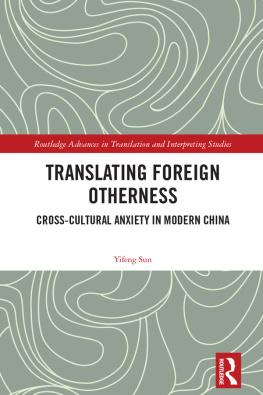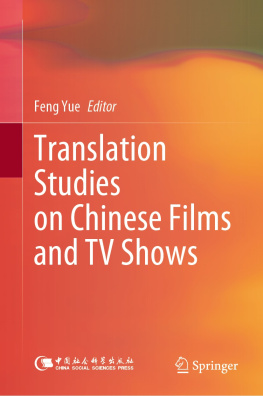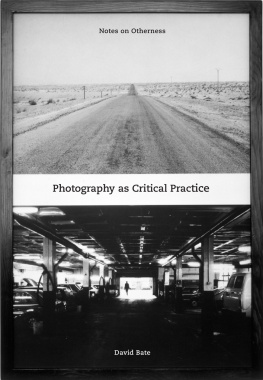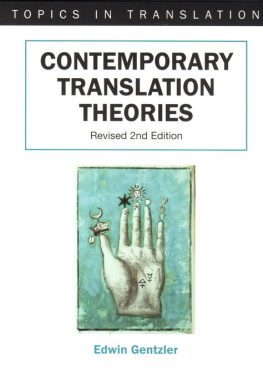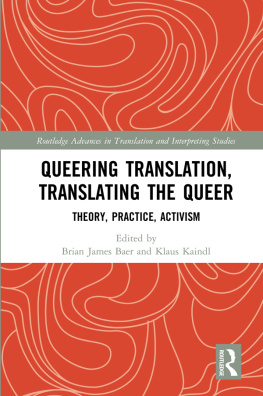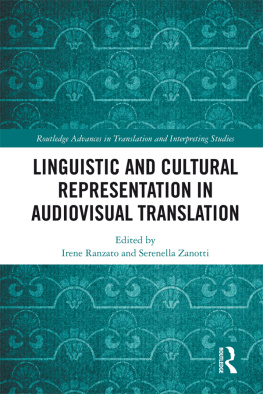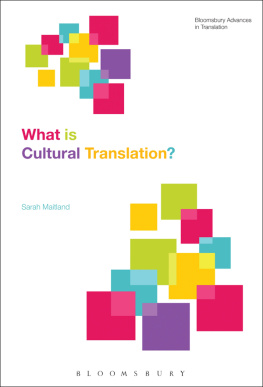Translating Foreign Otherness
This book is the first attempt to study and explore the deep-rooted anxiety about foreign otherness manifest through translation in modern China. It purports to contextualize and theorize a range of key issues concerning translation practice as a result of and in response to foreign otherness, which provides fertile sources for competing ways of thinking. While greatly expanding the Chinese perception of the world, they pose a threat to the stability of the Chinese self, which is then questioned and judged in a new light. China has had an uneasy relationship with the rest of the world, particularly the West, for well over a century. The transformative power of translation can best be outlined and illustrated by making a central argument about Chinas complex relationship with foreign otherness and identifying and exploring a range of relevant and interrelated aspects of theoretical concerns with regard to translation practice. The book is structured to specifically deal with and develop such interrelated themes in relation to foreign otherness: authenticity, foreignization, (un)translatability, translational violence, cultural attitude(s), and the practice of glocalization, all of which are fundamentally related to how translation can function to shape Chinas trajectory and interactions with the outside world.
Yifeng Sun is a Professor of Translation Studies, Dean of the Faculty of Arts, and Director of the Centre for Humanities Research at Lingnan University, Hong Kong. He is also an Honorary Professor at the University of Queensland, Australia, and an Adjunct Chair Professor at Jinan University, China.
Routledge Advances in Translation and Interpreting Studies
For a full list of titles in this series, visit www.routledge.com/Routledge-Advances-in-Translation-and-Interpreting-Studies/book-series/RTS
21Studying Scientific Metaphor in Translation
An Inquiry into Cross-Lingual Translation Practices
Mark Shuttleworth
22Translating Frantz Fanon Across Continents and Languages
Edited by Kathryn Batchelor and Sue-Ann Harding
23Translation and Public Policy
Interdisciplinary Perspectives and Case Studies
Edited by Gabriel Gonzlez Nez and Reine Meylaerts
24Translationality
Essays in the Translational-Medical Humanities
Douglas Robinson
25The Changing Role of the Interpreter
Contextualising Norms, Ethics and Quality Standards
Edited by Marta Biagini, Michael S. Boyd and Claudia Monacelli
26Translation in Russian Contexts
Culture, Politics, Identity
Edited by Brian James Baer and Susanna Witt
27Untranslatability Goes Global
Edited by Suzanne Jill Levine and Katie Lateef-Jan
28Queering Translation, Translating the Queer
Theory, Practice, Activism
Edited by Brian James Baer and Klaus Kaindl
29Translating Foreign Otherness
Cross-Cultural Anxiety in Modern China
Yifeng Sun
Translating Foreign Otherness
Cross-Cultural Anxiety in Modern China
Yifeng Sun

First published 2018
by Routledge
2 Park Square, Milton Park, Abingdon, Oxon OX14 4RN
and by Routledge
711 Third Avenue, New York, NY 10017
Routledge is an imprint of the Taylor & Francis Group, an informa business
2018 Yifeng Sun
The right of Yifeng Sun to be identified as author of this work has been asserted by him in accordance with sections 77 and 78 of the Copyright, Designs and Patents Act 1988.
All rights reserved. No part of this book may be reprinted or reproduced or utilised in any form or by any electronic, mechanical, or other means, now known or hereafter invented, including photocopying and recording, or in any information storage or retrieval system, without permission in writing from the publishers.
Trademark notice: Product or corporate names may be trademarks or registered trademarks, and are used only for identification and explanation without intent to infringe.
British Library Cataloguing-in-Publication Data
A catalogue record for this book is available from the British Library
Library of Congress Cataloging-in-Publication Data
A catalog record for this book has been requested
ISBN: 978-1-138-73328-2 (hbk)
ISBN: 978-1-315-18768-6 (ebk)
Typeset in Galliard
by Apex CoVantage, LLC
Contents
Guide
Thanks are due to Duke University Press for granting the permission to use portions of an article entitled Opening the Cultural Mind: Translation and Modern Chinese Literary Canon published in Modern Language Quarterly.
I would also like to thank Springer for allowing me to reprint a revised version of Cross-Cultural Translation: Attitudes, Feelings and Affective Interactions published in Neohelican: Acta comparationis litterarum universarum.
Parts of are based on an article published in ARIEL: A Review of International English, and I am grateful to the Johns Hopkins University Press for permission to make use of some of the material.
Translation in China has been entangled with foreign otherness. While its freshness of appeal provides much enlightenment, it is also a primordial source of anxiety. This ambivalence is of critical significance to understanding the nature of translation in the Chinese cultural-political context. And, a related range of issues concerning translation practice needs to be contextualized and theorized in relation to the interplay between foreign otherness and anxiety that has been aroused. Misconceptions of foreign otherness may have exacerbated tensions and dilemmas inevitably produced by the changing cultural landscape. The unnerving presence of foreign otherness manifest through translation has haunted China since the late Qing dynasty, when China started to embark on a long and arduous journey in search and pursuit of modernity. Since then, translation has been inexorably linked to social development in modern Chinese history. Foreign otherness is alienating and liberating in equal measure. This book seeks to demonstrate that central to Chinese translation practice is a generalized cultural anxiety about foreign otherness. It is thus meaningful to examine how foreign otherness, though initially and thereafter from time to time perceived as desirable, leads to suspicion and distrust and is also related to ideology inherent in translation.
Modern Chinese history has witnessed numerous social, political, and cultural upheavals, and generations of intellectuals have turned to the West for enlightenment and inspiration. As is often the case, translation has served as both the catalyst and conduit for stimulating cultural political changes in China. Mainly as a result of translation, ethnocentric beliefs and feelings have gradually given way to a more open and liberal way to explore and appropriate foreign otherness. Meanwhile, people are still gripped by the fear of Westernization, perceived as a threat to the Chinese cultural integrity and social stability. However, it can be seen that through translation, a universalized and universalizing cultural language reawakens and reinforces cultural identification. Translation activities are part of local realities in relation to the global world of transnational cultures. Global economic integration has enabled China to play an increasingly prominent role in the world today, especially in economic and political terms, though clearly not in cultural terms a perennial source of frustration for many Chinese. With the growing localized appropriation of globalized cultural information, more shared or universal references are making it possible for Chinese translations of foreign, especially Western texts, to be less hampered by cultural difference.

